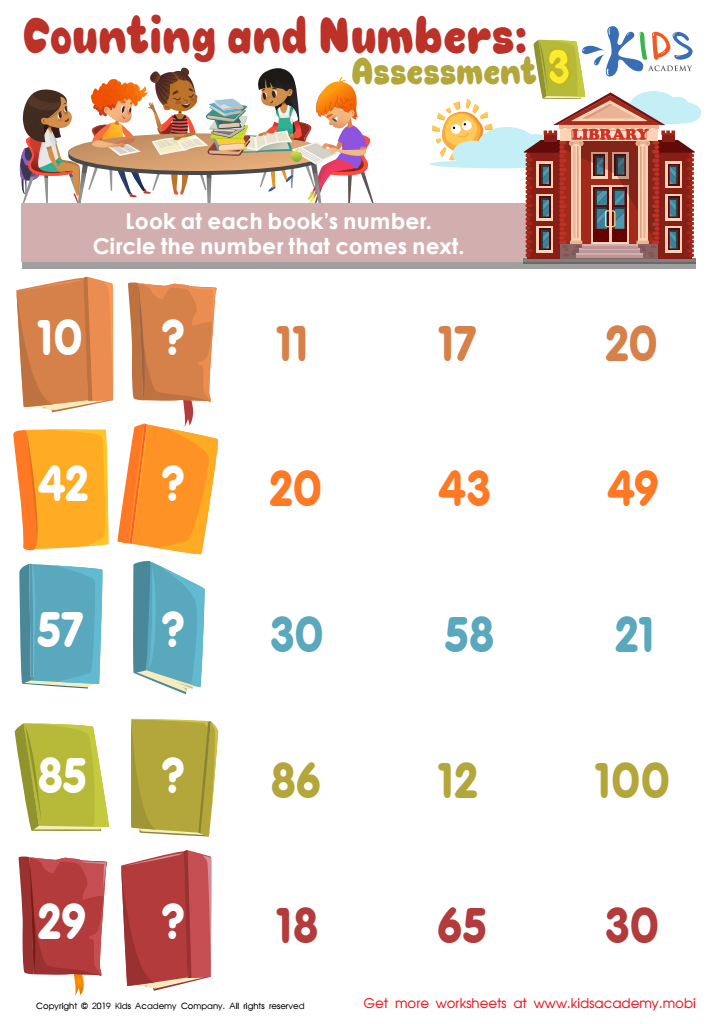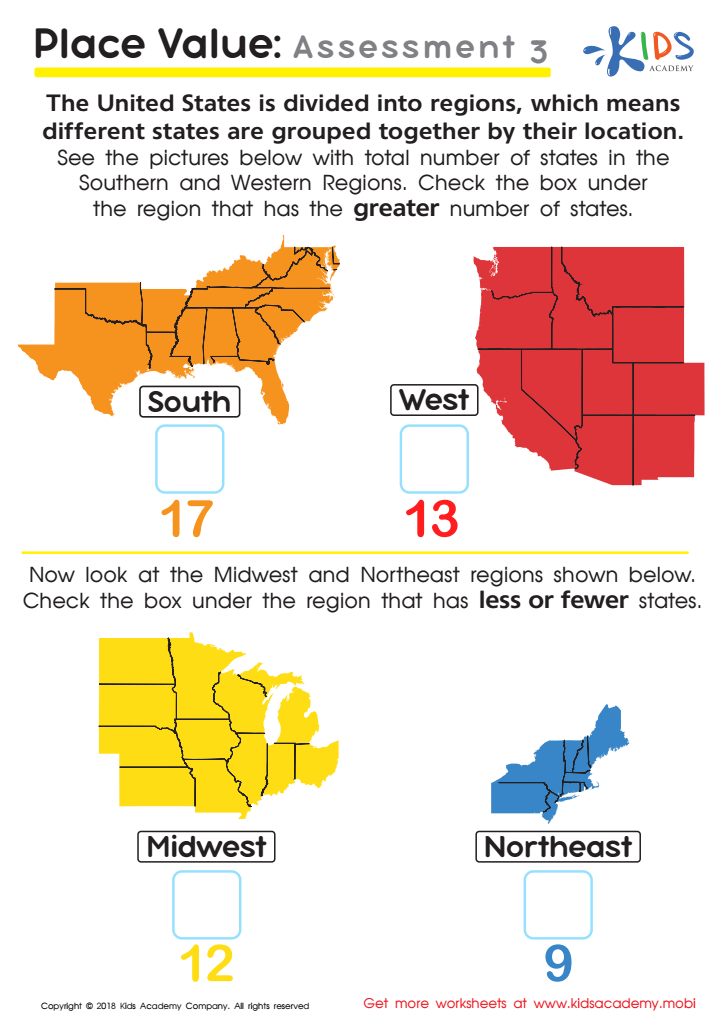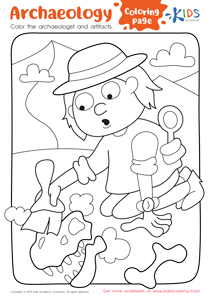Normal Numbers worksheets activities for Ages 6-7
2 filtered results
-
From - To


Counting and Numbers: Assessment Worksheet


Place Value: Assessment 3 Worksheet
Normal Numbers worksheets activities are essential tools in the foundational education of mathematics. These activities provide a systematic and structured approach to understanding numbers, their properties, and their applications in everyday life. Engaging in Normal Numbers worksheets activities allows students to build a strong mathematical base, crucial for their academic growth and real-world problem-solving skills.
Firstly, Normal Numbers worksheets offer a varied range of exercises that cater to different learning styles and levels of understanding. Whether it's simple counting, understanding place values, or performing basic arithmetic operations, these activities are designed to reinforce learning through practice. By repetitively solving problems, students enhance their accuracy and speed, which are vital skills in mathematics.
Moreover, these worksheets are instrumental in developing critical thinking and analytical skills. Through activities that require pattern recognition, comparison, ordering, and classification of numbers, learners are trained to approach problems logically and methodically. This not only aids in their math studies but also in other subjects that require analytical thinking.
Another significant benefit of Normal Numbers worksheets activities is their ability to instill confidence in students. Mathematics can be a challenging subject for many, leading to anxiety and avoidance. However, the gradual increase in difficulty level in these worksheets ensures that students can progress at their own pace, building their confidence with each success. This positive reinforcement encourages a more enthusiastic and persistent attitude towards learning mathematics.
Additionally, these worksheets serve as valuable assessment tools for both teachers and parents. By observing the performance of learners in these activities, educators and guardians can identify areas of strength and weakness, tailoring instruction and support to meet the individual needs of each student.
In conclusion, Normal Numbers worksheets activities are not merely routine exercises but are fundamental in shaping a solid mathematical foundation. They promote understanding, critical thinking, confidence, and personalized learning, making them indispensable in the education of young learners.
 Assign to the classroom
Assign to the classroom












